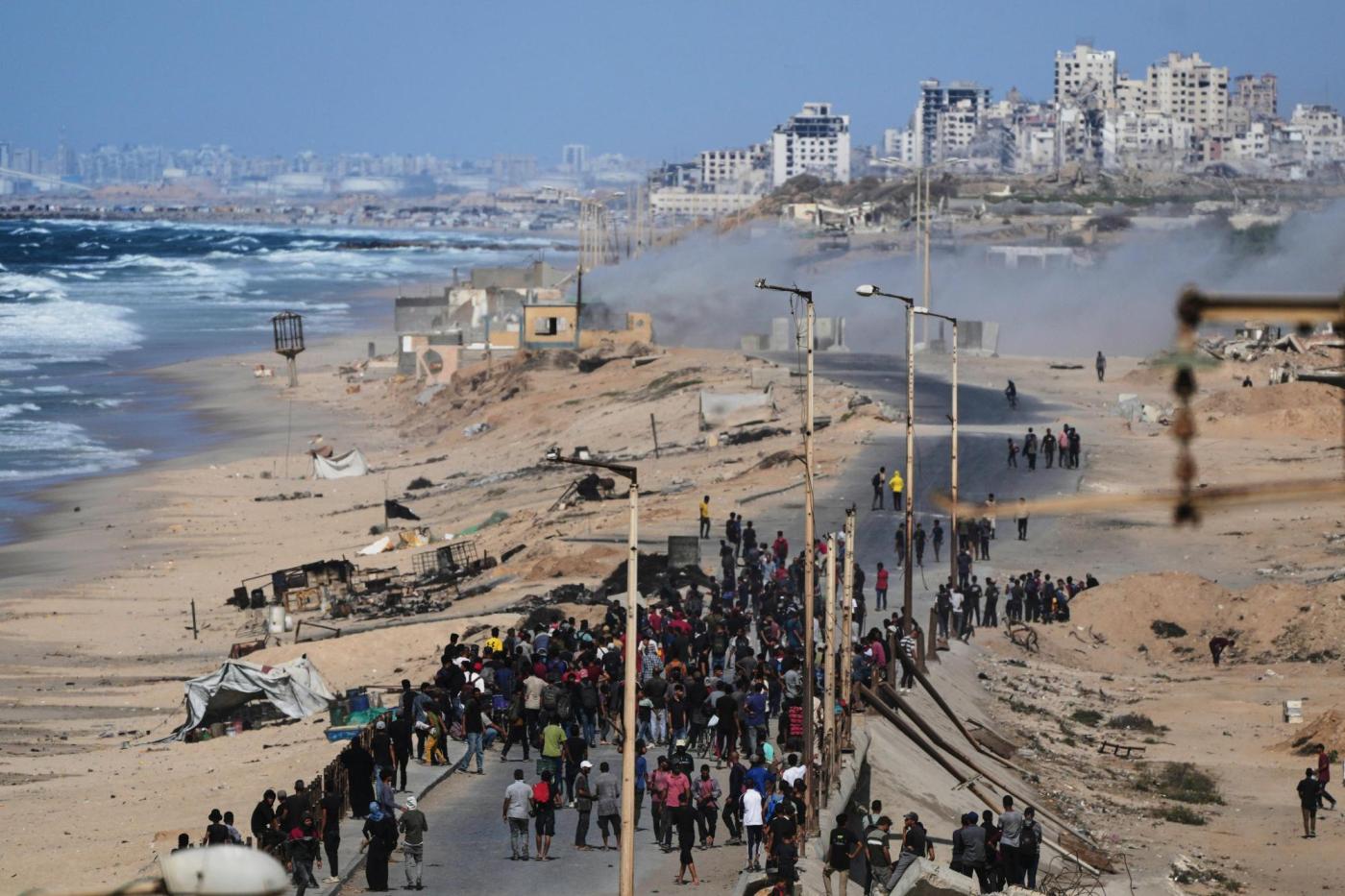A breakthrough agreement has been reached to pause the ongoing war in the Gaza Strip, following intense negotiations involving the United States, Arab nations, and Turkey. This deal aims to halt hostilities that have persisted for two years, resulting in significant casualties and widespread devastation in the region. U.S. President Donald Trump expressed hope that this would lead to “a Strong, Durable, and Everlasting Peace.” The initial phase of the agreement involves the release of hostages and prisoners, but critical questions remain regarding the future of the conflict.
Key Elements of the Agreement
The accord, which still awaits ratification from the Cabinet of Israeli Prime Minister Benjamin Netanyahu and the Knesset, is expected to initiate a phased withdrawal of Israeli troops from Gaza. According to anonymous sources, the extent of this withdrawal is not yet publicly detailed, though it is anticipated that troops will move away from densely populated areas.
The agreement stipulates that Hamas will release 20 living Israeli hostages within days, likely by October 12, 2025. In return, Israel will free hundreds of Palestinian prisoners. Additionally, Hamas has committed to returning the remains of approximately 28 hostages believed to have died, though logistical challenges may delay this process.
As these developments unfold, humanitarian aid is set to increase, with hundreds of aid trucks beginning to flow into Gaza, signaling a potential easing of the humanitarian crisis.
Negotiating the Future
While the initial steps appear promising, the complexities of the situation are daunting. Hamas has long insisted that it will not release its hostages unless there is a complete withdrawal of Israeli forces. The timeline for this withdrawal remains uncertain, with speculation ranging from weeks to years. Israel has indicated plans to maintain a presence in certain areas, particularly along the border with Egypt.
The agreement highlights a critical demand from Israel: the disarmament of Hamas. Netanyahu has reiterated that military operations will continue until Hamas’ capabilities are dismantled. Although Hamas has resisted disarmament in the past, reports suggest that the group may be open to a decommissioning process, potentially involving oversight from a Palestinian-Egyptian committee.
Amidst these negotiations, the future governance of Gaza poses another significant challenge. Israel seeks a governance structure devoid of Hamas influence, yet it has rejected proposals that involve the Palestinian Authority. Hamas, which has governed Gaza since 2007, has indicated a willingness to cede control to a body of Palestinian technocrats, but the specifics remain unresolved. Trump’s plan suggests the establishment of an international governing body to oversee the transition, but Hamas has yet to agree to this framework.
Following the announcement of the agreement, Israelis celebrated the potential end of hostilities, particularly the prospect of finally securing the release of hostages held for two years. Conversely, many Palestinians remain cautious. While there is relief that bombings may cease temporarily and humanitarian aid could flow, concerns linger regarding the durability of the ceasefire and the possibility of renewed conflict.
Many Palestinians fear that any setbacks in negotiations could prompt Israel to resume military actions. Prime Minister Netanyahu’s administration has maintained that it will retain long-term security control over Gaza, raising concerns over potential displacement of the Palestinian population. Continued international pressure may be necessary to prevent a return to full-scale war.
If a comprehensive agreement is not reached, Gaza risks descending into a state of prolonged instability. In such a scenario, Israeli troops could remain in parts of Gaza while Hamas continues its operations, severely hampering reconstruction efforts and leaving the population in dire circumstances.
The path forward is fraught with uncertainties. Both sides must navigate a complex web of demands and guarantees to ensure that the fragile peace holds. The coming days and weeks will be critical as negotiations progress and the realities on the ground continue to evolve.
